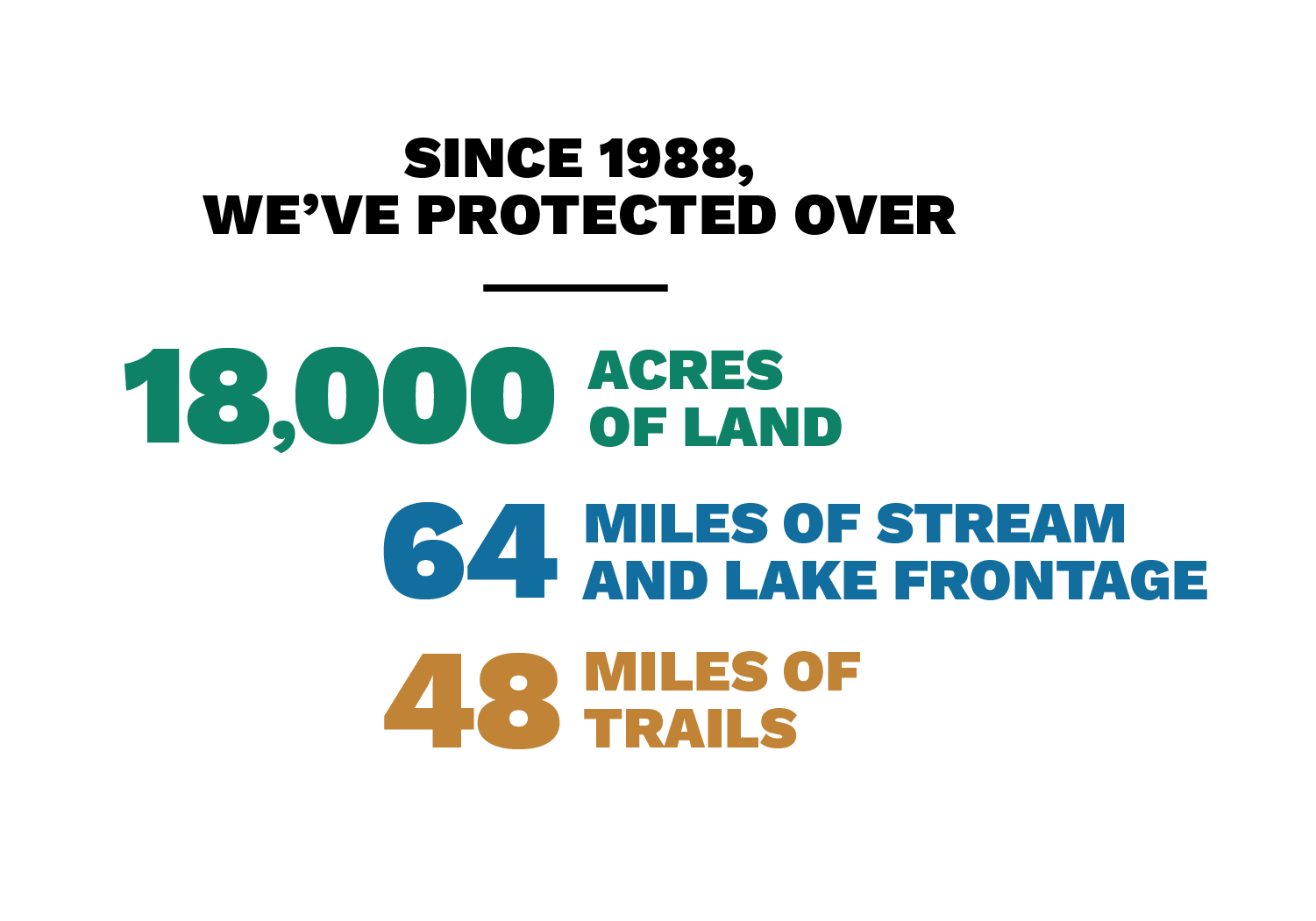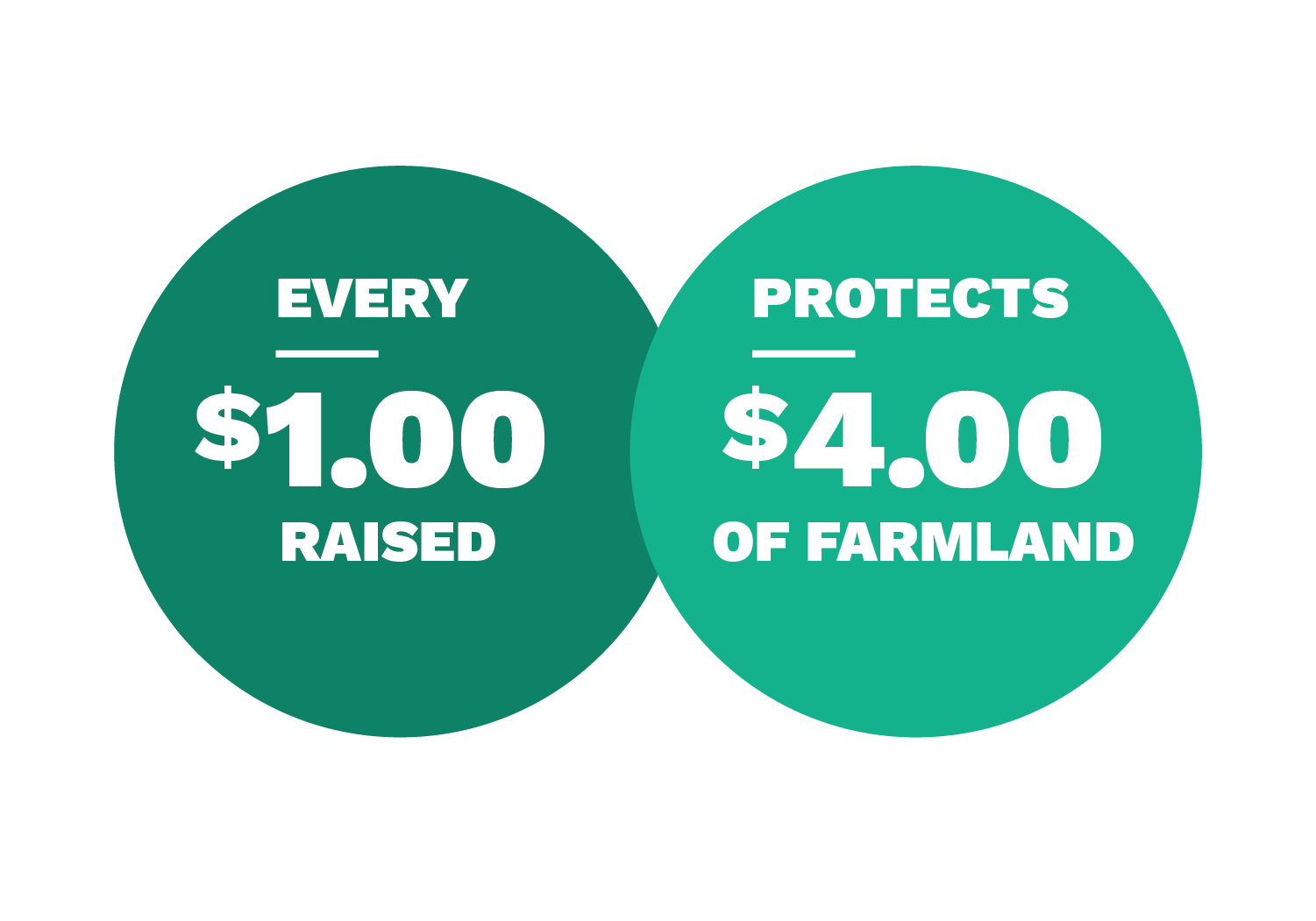Lake Leelanau Watershed Initiative Preserves 2 More Parcels: Total of 316 Acres Protected In Phase II All Together!
This fall, the Leelanau Conservancy completed a very successful three-year grant project that helped to purchase conservation agreements in the Lake Leelanau watershed. The final two projects detailed below were completed in the last two months, adding a total of 33 acres of forested stream valleys to a complex of existing conservation easements. Click here to see a map of all protected properties so far in the Lake Leelanau Watershed.
Tom Price and his wife, Cindy Carlson, have owned their vacant 40-acre wooded parcel for several decades with the intention of someday returning to Leelanau County to build a retirement home. In 2007, their long-time Leelanau County friends, Bill Rastetter and Carolyn Weed told the Prices about the Conservancy’s Lake Leelanau Watershed Initiative. Phase Two of the Initiative was near completion and its goal, as in Phase One, was to purchase conservation agreements from interested landowners in the watershed in order to protect water quality and wildlife habitat.
While Tom and Cindy knew exactly where on their property they wished to build their dream home some day, they also felt that most of their land should remain untouched. They know the ecological value and sensitivity of the groundwater springs and broad seepage areas that are present on steep forested slopes. These springs and seepage areas flow through organically rich soils that are very sensitive to disturbance from motorized vehicles and logging practices. After talking with Matt Heiman and learning about how conservation agreements work they decided to permanently restrict about 34 of their acres. The remaining 6 acres abut a county road and were not restricted because that land would be a good site for their future home. This part of their property features a young, immature forest with no streams or spring sources. In early August the Conservancy purchased a permanent conservation easement from the Prices.
The final conservation agreement purchased with “Lake Leelanau Permanent Land Protection II” grant funds covers 61.5 acres owned by Bill Rastetter and Carolyn Weed. The Rastetter/Weed conservation agreement helps to maintain high water quality by protecting over 3,150 feet of groundwater streams that flow into Lake Leelanau. The project also protects important wildlife habitat and contributes to a large block of already protected lands that include the Miller I CE (60 acres, est. 2001), Miller II CE (60 acres, est. 2005), Karfonta CE (40 acres, est. 2008) and Price CE (34 acres, est. 2010). All of these properties are adjacent to one another and lie south of the Rastetter/Weed property. The Rastetter./Weed conservation agreement contributes another 61.5 acres to what is already one of our largest privately held conservation easement corridors on the peninsula. The combined properties total 254.5 acres and make up a contiguous corridor of wetlands, stream corridors and forested uplands, forming a vital natural habitat network. Large corridors like this one provide essential connections for wildlife movement and natural plant dispersal.
The Lake Leelanau Watershed Permanent Land Protection Project II was a tremendous success and exceeded expectations by completing permanent conservation easements over 316 acres, – more than double the 125 acres projected. The project leveraged $70,069 more than the contracted local match of $384,938. This high level of community support allowed the Leelanau Conservancy to exceed the project goal and establish six permanent conservation easements over 316 acres containing 8,050 feet of frontage along first and second order streams flowing into Lake Leelanau. These permanently protected areas prevent over 21.21 tons of sediment, 917.30 lbs. of nitrogen and 85.94 lbs. of phosphorus from loading into the Lake Leelanau watershed every year by preventing conversion of the land under conservation agreement to residential use.



